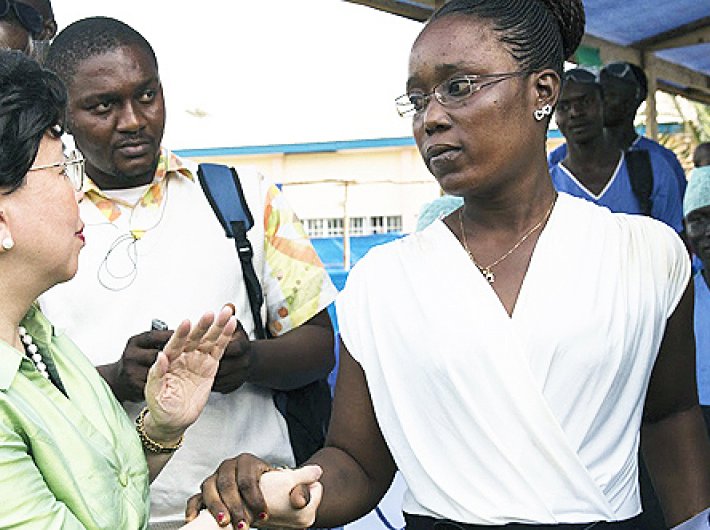One year after the first Ebola cases started to surface in Guinea, WHO is out with a report that takes an in-depth look at the disease
GN Bureau | January 19, 2015

Several attractive benefits to provide tax relief to salaried individuals and pensioners opting for the new tax regime were announced by finance minister Nirmala Sitharaman while presenting the Union Budget 2024-25 in Parliament on Tuesday. She proposed to increase the standard deduction for
SUMMARY OF THE UNION BUDGET 2024-2025 Key points INDIA’S INFLATION CONTINUES TO BE LOW, STABLE AND MOVING TOWARDS THE 4 PER CENT TARGET PM’S PACKAGE OF 5 SCHEMES AND INITIATIVES WITH AN OUTLAY OF ₹ 2 L
Finance minister Nirmala Sitharaman presented the Union Budget 2024-25 in Parliament on Tuesday. The highlights of the budget are as follows: Part-A Budget Estimates 2024-25: T
India’s real GDP is projected to grow 6.5–7 per cent in 2024-25. The Indian economy recovered swiftly from the pandemic, with its real GDP in FY24 being 20 per cent higher than the pre-COVID, FY20 levels. This was stated in the Economic Survey 2023-24 presented in Parliament Monday by finance m
As the Indian concept of welfare transforms into empowerment, India is transitioning from women’s development to women-led development, highlights the Economic Survey 2023-2024. Tabled in the Parliament on Monday by finance minister Nirmala Sitharaman, the Economic Survey 2023-2024 fo
Provincials: Postcards from the Peripheries By Sumana Roy Aleph Book Company, 320 pages, Rs 899 Sumana Roy’s latest work, like its p